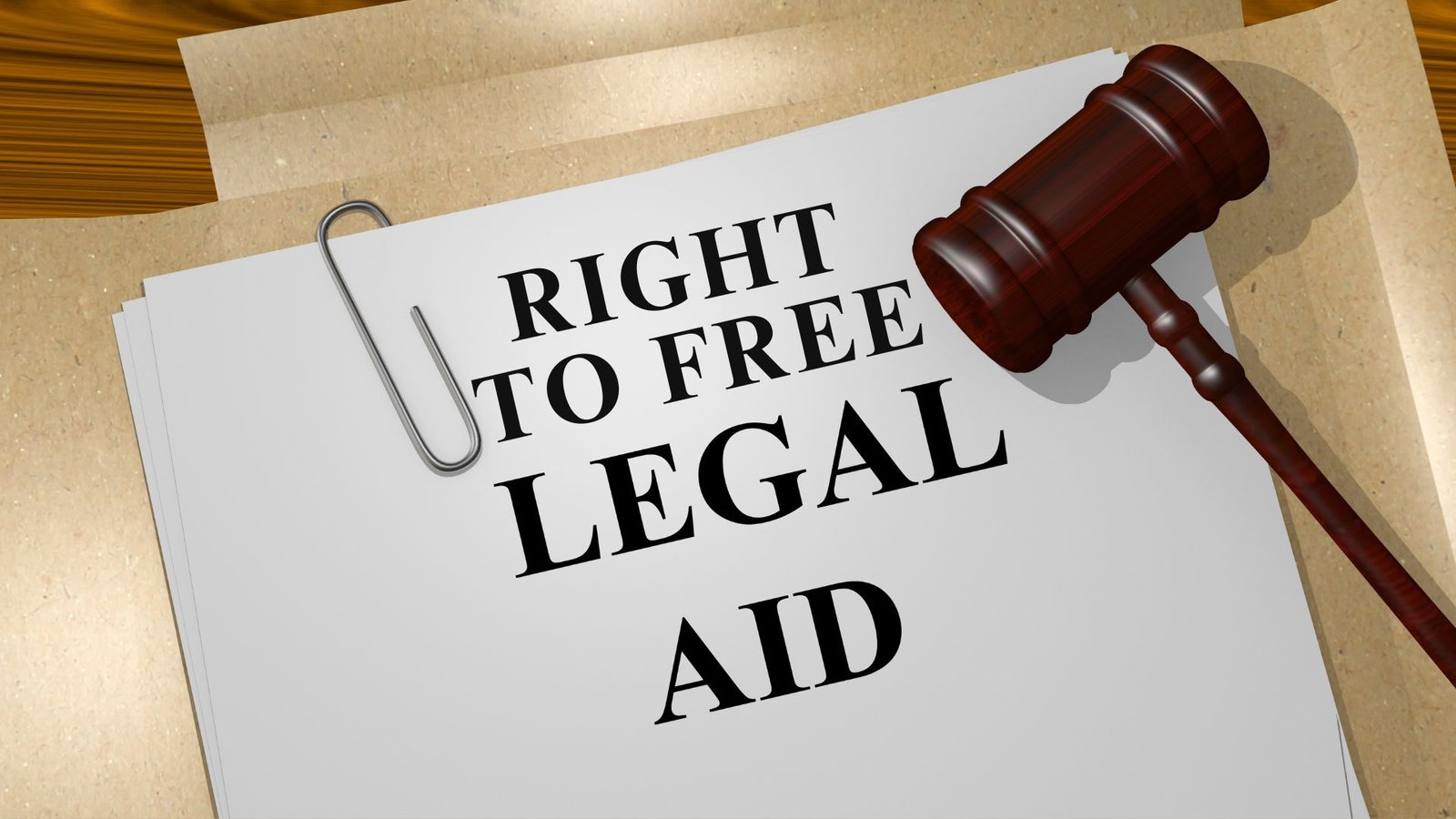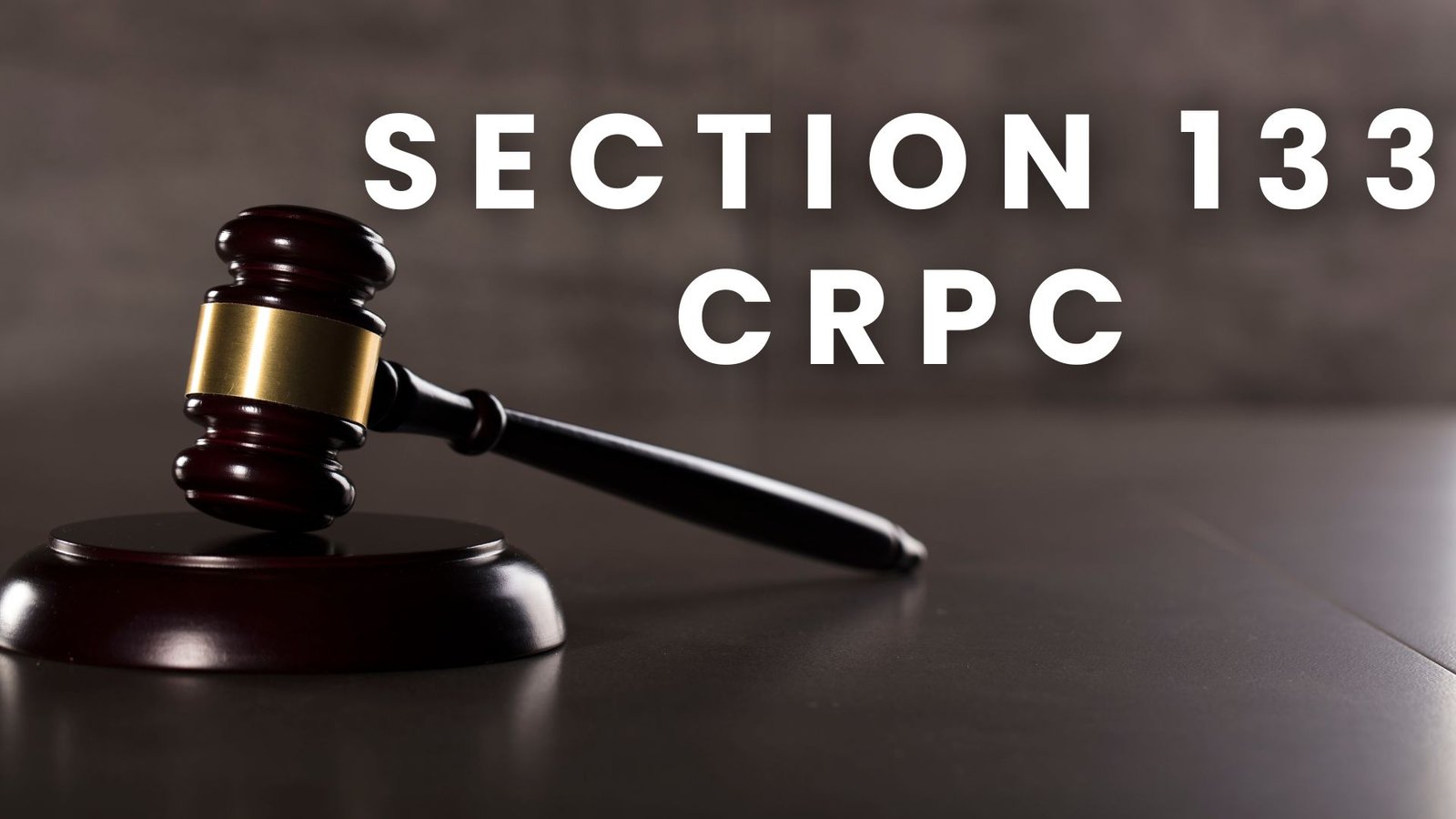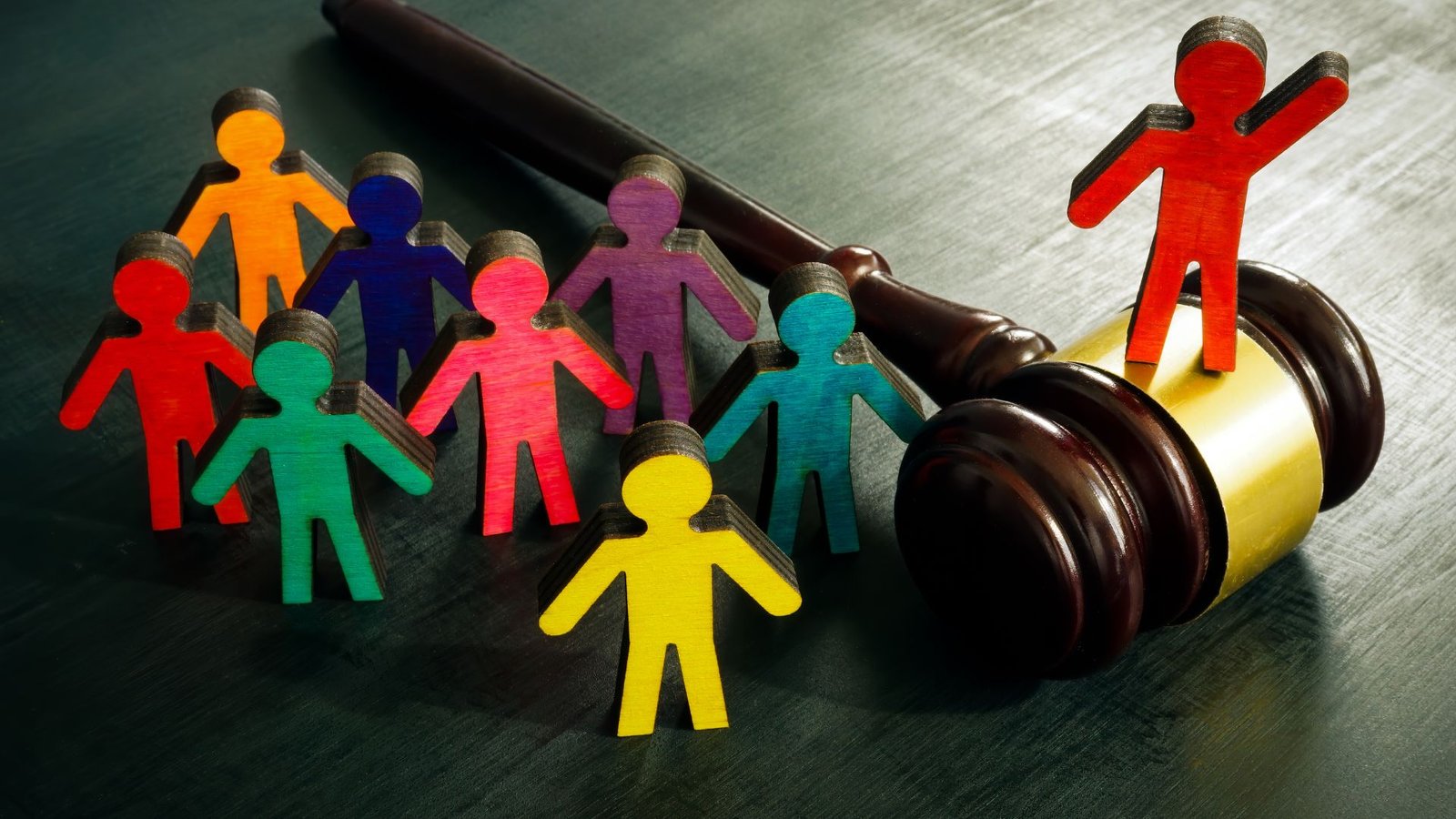On this page you will read detailed information about Right to Free Legal Aid.
As a citizen seeking justice, you have the right to competent legal representation regardless of your ability to pay. Access to free legal aid ensures the protection of your basic rights and provides you a fair chance to be heard when accused of a crime, sued in a civil case, or party to matters involving essential needs like housing, health care, or child custody. Without such aid, justice would remain out of reach for countless disadvantaged people. This article explores the ethical and practical necessity of free legal services so that all citizens, not just those who can afford counsel, are equal under the law. It further examines reasonable ways society can fulfill this vital commitment.
What Is the Right to Legal Aid?
The right to legal aid refers to the principle that all people have a fundamental right of equal access to the justice system. The legal aid system is designed to ensure that those who cannot afford legal representation are still provided fair access to legal services.
- Legal aid helps safeguard the constitutional right to due process and a fair trial. It helps level the playing field between parties regardless of socioeconomic status.
- The right to legal aid is recognized internationally as a basic human right that spans across civil, criminal, and administrative law.
- Legal aid services may include:
- Legal advice and assistance
- Representation in court and before tribunals
- Legal education to raise awareness of legal rights
- Eligibility for legal aid is based on a person’s financial situation and the type of legal issue. Those who are unable to afford legal services may qualify.
- Free legal services are typically provided by a network of legal aid lawyers, law clinics at universities, pro bono work from the private bar, and legal advice NGOs.
- Funding for legal aid programs comes from a mix of governmental budgets, private foundations, law firm donations, and law school clinical programs.
In summary, the right to legal aid allows equal access and due process under the law, regardless of one’s ability to pay. It is an essential protection that upholds basic human rights and justice system integrity. Providing those in need with legal help or representation is vital for equality before the law.
In the previous post, we had shared information about The Purpose and Implementation of the Model Code of Conduct, so read that post also.
Why Is the Right to Free Legal Aid So Important?
The right to free legal aid provides essential support to vulnerable and marginalized people. It ensures that everyone has access to legal advice and representation, regardless of financial means. Free legal aid is a vital component of upholding human rights. Here are reasons why this right is so important:
- Ensures equal access to justice: Free legal aid levels the playing field in court, providing legal guidance and advocacy to people who would otherwise be unable to afford it. This promotes fairness and equal treatment under the law.
- Protects the rights of society’s vulnerable: Legal aid helps safeguard the rights of marginalized groups – the poor, the disabled, minorities, women, children, refugees, prisoners, and more. It shields the underprivileged from mistreatment and exploitation.
- Holds duty-bearers accountable: Legal aid ensures governments, authorities and other responsible parties uphold their obligations, are answerable for their actions, and do not violate people’s rights with impunity.
- Supports rehabilitation and social reintegration: For prison inmates and released offenders, legal aid facilitates rehabilitation and a return to productive society through avenues like record expungement and workforce programs.
- Upholds human dignity: Access to legal counsel and due process preserves human dignity and autonomy in situations like detention, institutionalization, deportation hearings, and child welfare cases. It prevents arbitrary treatment.
In essence, free legal aid gives a voice to the voiceless. It empowers society’s most vulnerable members to understand and exercise their rights. Free access to legal counsel and the court system is an indispensable public good that should be guaranteed for all.
The History of the Right to Legal Aid
Providing legal assistance to those unable to afford it has long been viewed as an essential element of a fair and equitable justice system. The origins of the right to legal aid can be traced back centuries in Western legal traditions.
- In medieval England, legal advisers were appointed to represent poor defendants in criminal trials as early as the 13th century. These early public defenders ensured fair treatment and prevented indefinite imprisonment of those unable to navigate complex legal codes.
- By the 1700s, some American colonies had passed laws providing for court-appointed lawyers to defendants in criminal cases who could not retain their own representation. However, legal aid remained limited in scope and availability.
- In the late 1800s and early 1900s, organized free legal aid societies emerged in the United States and United Kingdom. These non-profit organizations were staffed largely by volunteers and focused primarily on providing counsel in civil disputes to indigent community members.
- The development of government-funded legal aid systems greatly expanded access to justice. Pioneered in the United Kingdom with the Legal Aid and Advice Act of 1949, publicly-funded legal aid soon spread to other commonwealth countries. Similar programs were later adopted in the United States on the federal and state levels.
With this history in mind, most industrialized democracies now legally recognize a basic right of access to civil legal services. While implementation varies between jurisdictions, protecting society’s most vulnerable members remains an acknowledged prerequisite for true equal protection under the law.
Who Qualifies for Free Legal Aid?
To qualify for free legal aid, there are certain eligibility requirements that must be met:
- Income Level
- Free legal aid is generally reserved for low income individuals who earn below a certain income threshold. This may vary by state or service provider, but is often set at 200% of the Federal Poverty Guidelines.
- Legal Issue
- Typically, the legal issue must be related to essential needs or basic rights like housing, healthcare, domestic violence, consumer rights, income maintenance, etc.
- Assets
- Your total savings, investments or other assets may be considered when determining eligibility. Again, asset limits can vary.
- Citizenship Status
- Most free legal aid programs serve U.S. citizens and some legal residents or immigrants. Restrictions apply for undocumented individuals.
Most free legal aid organizations will conduct a thorough screening process to verify an applicant meets the eligibility criteria. Be prepared to provide documents like:
- Pay stubs
- Bank statements
- Tax returns
- Information on debts or expenses
- Details related to your legal situation
The intake process aims to direct limited resources to those most critically in need. If you do not qualify for fully free aid, you may still get legal help at reduced costs based on your specific circumstances.
Eligibility often centers on financial criteria, but the severity of your situation can also be a factor. Be detailed when initially describing your legal problem so the organization can properly assess your level of need.
Frequently Asked Questions About Legal Aid
Understanding your right to free legal aid, also known as pro bono legal services, can be key to accessing representation and justice. Here are answers to some common questions:
Legal aid refers to free or low-cost legal representation and other services provided to people who cannot afford legal assistance on their own. Legal aid programs help ensure access to the justice system regardless of income.
Each legal aid organization has financial guidelines to determine eligibility. Generally, legal aid is available for low-income individuals and families who earn below 125% of the federal poverty level. Legal aid can also be available in cases of extreme hardship even if income limits are higher.
Common cases include housing disputes like evictions, employment issues, family law such as child support and domestic violence situations, access to healthcare, disaster relief, elder law, disability rights and civil rights cases. Criminal defense may also be covered in some instances.
To get legal aid, you must first contact an organization in your area and complete an intake process to verify eligibility. Many legal aid societies have online forms on their websites to get the process started. Court clerks may also maintain lists of legal aid resources.
If you do not meet guidelines for free legal services, ask organizations about reduced fee arrangements. Also inquire about legal clinics offering limited advice for free or at low cost. Private attorneys sometimes take cases pro bono as well. Checking with your local bar association is recommended.
Having an understanding of the legal aid landscape can empower you to seek help when needed. Protecting access to justice systems for all is an essential human right. With knowledge and resources, the law can work for every individual regardless of economic status.
Conclusion
As a citizen of this country, you have a right to fair and equal treatment under the law. Access to free legal aid helps ensure that your rights and freedoms are upheld, regardless of your financial situation or background. Consider getting involved with local legal aid initiatives or donating to organizations that provide these essential services. Protecting the legal rights of all is vital for a just society. Moving forward, we must continue to fight for this critical safeguard and work to expand free legal services so the scales of justice are balanced for all.
Disclaimer
The information and services on this website are not intended to and shall not be used as legal advice. You should consult a Legal Professional for any legal or solicited advice. While we have good faith and our own independent research to every information listed on the website and do our best to ensure that the data provided is accurate. However, we do not guarantee the information provided is accurate and make no representation or warranty of any kind, express or implied, regarding the accuracy, adequacy, validity, reliability, availability, or completeness of any information on the Site. UNDER NO CIRCUMSTANCES SHALL WE HAVE ANY LIABILITY TO YOU FOR ANY LOSS OR DAMAGE OF ANY KIND INCURRED AS A RESULT OR RELIANCE ON ANY INFORMATION PROVIDED ON THE SITE. YOUR USE OF THE SITE AND YOUR RELIANCE ON ANY INFORMATION ON THE SITE IS SOLELY AT YOUR OWN RISK. Comments on this website are the sole responsibility of their writers so the accuracy, completeness, veracity, honesty, factuality and politeness of comments are not guaranteed.
So friends, today we talked about Right to Free Legal Aid, hope you liked our post.
If you liked the information about Right to Free Legal Aid, then definitely share this article with your friends.
Knowing about laws can make you feel super smart ! If you find value in the content you may consider joining our not for profit Legal Community ! You can ask unlimited questions on WhatsApp and get answers. You can DM or send your name & number to 8208309918 on WhatsApp








